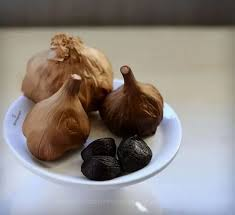AUTHOR : SUPRIYA BANSAL
PUBLISHER : UKIYOTO PUBLISHING
GENRE : CHILDREN & YOUNG ADULT
BOOK BUY LINK : @Amazon
A Feast
for Ganesha is a heartwarming children’s book written by Supriya
Bansal, a medical doctor by profession and an author by passion. The book
gently introduces young readers to the ideas of devotion, kindness, faith, and
selfless worship. Written in simple, clear, and child-friendly language, the
story is easy to understand and deeply meaningful. It beautifully blends
festive joy with moral values, making it an engaging and thoughtful read for
children.
One of the strengths of the book
lies in its simplicity. The author chooses a storyline that is close to
everyday life, making it easy for children to connect with the main character.
The emotions, struggles, and hopes of a young child are portrayed with
sensitivity and warmth. Through the eyes of a little girl, the author presents
the spirit of Ganesh Chaturthi, not just as a festival, but as an
occasion to practice faith, generosity, and compassion.
The illustrations by artist
SRAC greatly enhance the appeal of the book. The visuals are colourful,
expressive, and lively, perfectly complementing the narrative. Each
illustration captures the mood of the scenes—be it the festive excitement,
Tara’s hard work, or her emotional disappointment. For young readers, these
pictures add joy and help them better understand the story. The title A
Feast for Ganesha is simple yet thought-provoking, hinting at a deeper
meaning beyond food and celebration.
The story revolves around Tara,
a nine-year-old girl who lives with her poor family. Tara is deeply devoted to
Lord Ganesha and eagerly looks forward to celebrating Ganesh Chaturthi.
However, her family’s financial condition does not allow them to spend money on
festival preparations. Despite these limitations, Tara’s devotion remains
strong. She decides to do whatever she can, within her means, to worship the
Lord.
Tara’s mother gives her some
pocket money to travel to school by bus. Instead of spending it, Tara chooses
to walk every day, saving the money for the festival. In the evenings, she
works at a small tea shop and earns a little amount, which she carefully adds
to her savings. Tara also spends time in the library, reading stories about
Lord Ganesha and learning about the significance of the festival. Her
dedication, discipline, and determination reflect maturity beyond her age.
When the festival approaches,
Tara finally buys modaks, poha, bananas, and durva grass, the
traditional offerings for Lord Ganesha. Filled with happiness and pride, she
walks back from the market, enjoying the festive atmosphere around her. She
watches people decorating pandals, hears music playing, and sees a dancer
performing joyfully. These scenes add colour and excitement to the story and
show the collective spirit of celebration.
On her way, Tara gets stuck in a
traffic jam managed by Constable Patil. Later, she meets Omi Bhaiya,
who asks for her help with lighting and sound arrangements for the Ganesh
Chaturthi celebration. After finishing her work, Tara goes to the tea stall
where she usually works. When she opens her bag, she is shocked and distressed
to find that all her offerings are missing.
Gradually, Tara learns what
happened. Omi Bhaiya had eaten the bananas, Constable Patil had eaten the
modak, the dancer had enjoyed the poha, and a boy at the tea shop had given the
durva grass to his goat. Tara is heartbroken. She feels that all her efforts,
sacrifices, and dreams have been ruined. Unable to control her emotions, she
breaks down and cries.
After some time, however, Tara
begins to reflect. She recalls the Sanskrit saying “Daivam Manushya Roopena”,
which means God appears in human form. She realizes that her offerings
were not wasted. Instead, Lord Ganesha had accepted them through different
people. This understanding brings peace to her heart and transforms her sorrow
into spiritual joy.
The message of the story echoes a
profound teaching from the Bhagavad Gita, which reminds us that a wise
person sees the same divine presence in all beings, without discrimination. A
Feast for Ganesha thus teaches children that true devotion lies not in
rituals alone, but in love, sharing, and seeing God in everyone.
Overall, this book is a
meaningful and inspiring read for children. It encourages empathy, faith, and
selfless devotion, making it a valuable addition to children’s literature.











